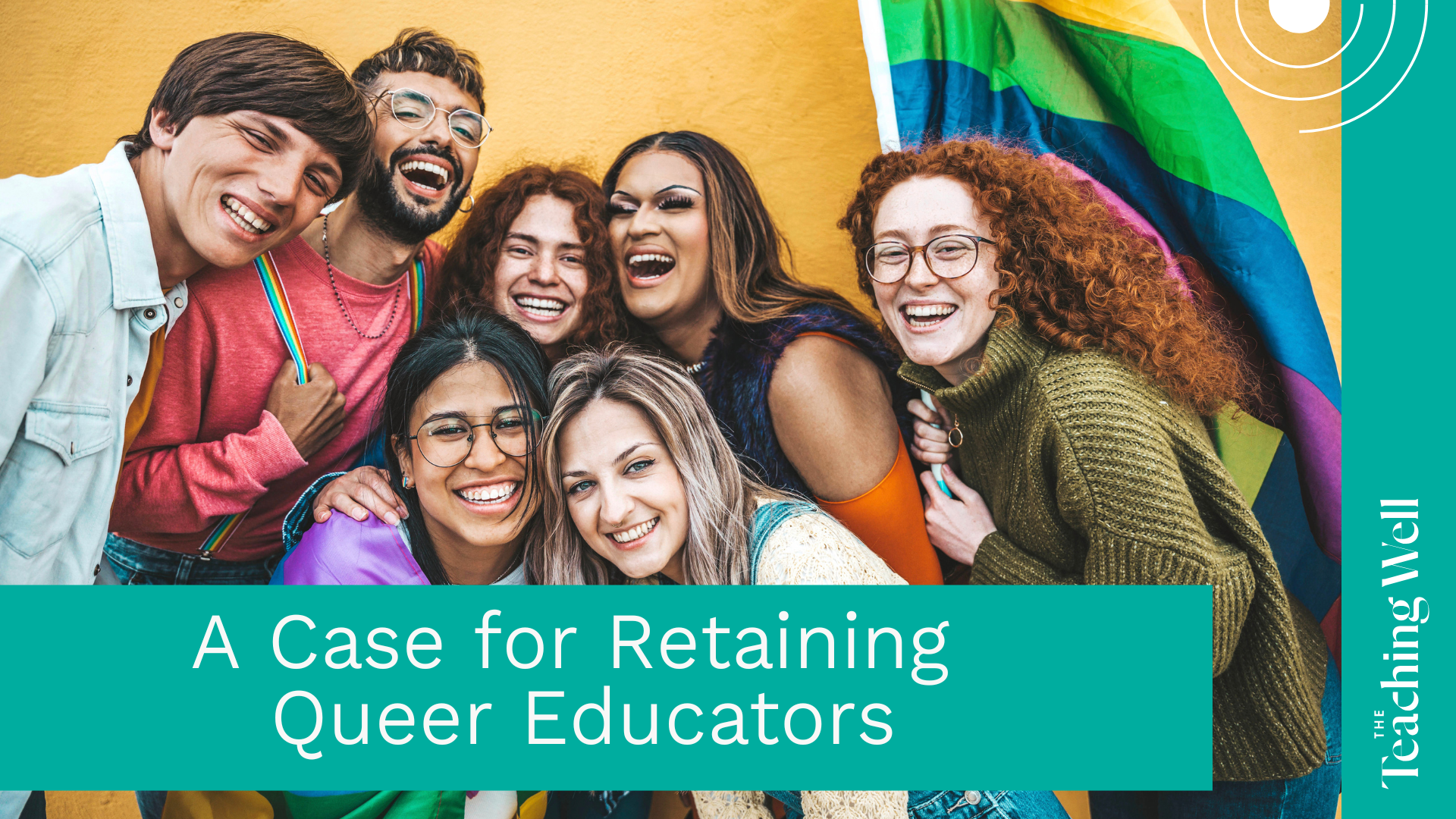A Case for Retaining Queer Educators
At The Teaching Well (TTW), we are on a mission to stabilize schools by retaining and sustaining a diverse educator workforce. As a team of 100% former teachers and admin, it’s our professional duty to protect children, and our Queer Educator Collective (QEC) is an initiative that allows us to keep representative teachers and wrap around our most at-risk young people.
TTW believes that the health and well-being of Queer educators is inseparable from the health and well-being of school communities. Supporting Queer educators is not “extra work” — it is a critical part of a retention mission. In order to create LGBTQ+-affirming school environments for marginalized students, we have to retain and sustain educators who share their identities and experiences. Because what strengthens Queer educators strengthens students. And what strengthens students strengthens all of us.
Our Queer, Trans, and non-binary K-12 students are among the most vulnerable when it comes to mental health; with disproportionately higher rates of anxiety, depression, and self-harm. Thanks to a recent study, we know “41% of LGBTQ young people seriously considered attempting suicide in the past year—and young people who are transgender, nonbinary, and/or people of color reported higher rates than their peers.”
One of the strongest protective factors to counteract risk for young people is caring, consistent adult relationships. Sometimes it is as simple — and as profound — as having one trusted educator who says: “I see you. I understand part of what you’re navigating. And I will keep showing up for you.” Research supports that for LGBTQ+ students “having caring teachers is associated with lower levels of negative mental health symptoms” (Parmar et al., 2022).
Another concrete protective factor named by researchers and reinforced in QEC, is respecting pronouns. In fact, “transgender and nonbinary young people who reported that all of the people they live with respect their pronouns reported lower rates of attempting suicide.”
So often Queer educators hold space for young people, advocate for them, and model resilience. Our QEC creates a container where these same educators can refill their metaphorical cups, connect with others who understand, and remember that they don’t have to carry it all alone.
When Queer educators come together in affinity, something powerful happens, as one former participant noted, “Coming together is healing.”
It’s what allows Queer educators to walk back into schools a little more resourced to support all of their students. Another participant confirmed that after a session with QEC, they felt “refreshed and recharged and seen. I was feeling so fragile, and now I feel more rooted.”
These are not small things. Resourced educators can create psychological safety for students.
And that’s something our schools desperately need — an environment that “can lead to increased engagement, creativity and collaboration among students, ultimately leading to better learning outcomes” (ISTE, 2023). Safety is a prerequisite to true learning. If we want to ensure our students thrive not just socially and emotionally, but also academically, then supporting Queer educators matters deeply. When we provide safe and brave spaces for Queer educators, when we make sure they are resourced and thriving, students will also thrive.
1 The Trevor Project. (2023). 2023 U.S. national survey on the mental health of LGBTQ young people. https://www.thetrevorproject.org/survey-2023/
2 Sandler, G., & Howell, S. (2023, May 31). 7 ways of creating psychological safety for students. ISTE. https://iste.org/blog/7-ways-of-creating-psychological-safety-for-students

